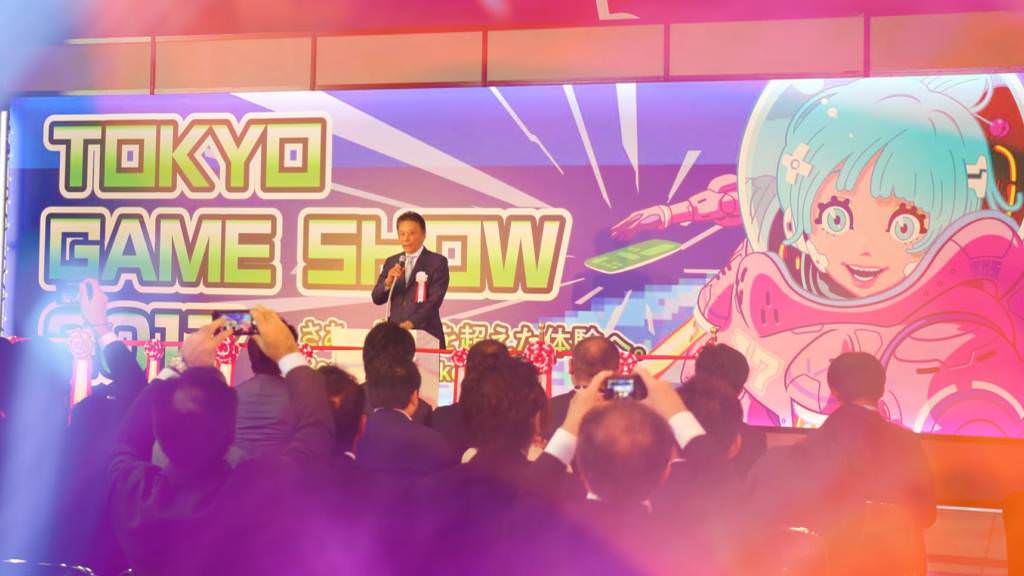The Tokyo Game Show (TGS) drew crowds from across the globe this weekend, showcasing the latest games, peripherals and some pretty amazing photo ops. Here are the trends that caught our eye.
Old Is New Again
Remakes and tie-ins are all the rage for video games this year, especially for PlayStation. From Rise of the Colossus to Zone of the Enders, publishers are revisiting old titles and betting big on nostalgia to drive sales.
A number of updated fan favorites from “back in the day” are coming soon, including a 3D remake of Secret of Mana and Yakuza Kiwami 2. Although fans won’t get a look at the Final Fantasy 7 remake during TGS, previously unseen footage was revealed at a Distant Worlds Final Fantasy concert on Friday—which should hold them over for a while, at least.
While these announcements have some fans excited to relive the games of their past on new consoles, others wonder why there aren’t more new titles being announced.
Japan Plays Up Esports
TGS hosted its first large-scale esports activations this year, including two stages sponsored by Sony and Samsung. Eight invitational tournaments took place over the two-day event, pitting players in Call of Duty: Infinite Warfare, Street Fighter V, Monster Hunter Double Cross, Counter-Strike Online 2 and more.
Gaming peripheral manufacturer HyperX made its first appearance at TGS this year, hosting live competitions for Overwatch, Playerunknown‘s Battlegrounds and Street Fighter V.
Twitch hosted commentary and livestreams of games throughout TGS and was on-hand with a huge booth to promote H1Z1: Road To Twitchcon—an invitational competition that has taken place at gaming events throughout the year. The player with the highest score won a trip to compete in the H1Z1 Invitational at Twitchcon 2017.
東京ゲームショウ2017の一般公開日には、ウメハラ選手、ときど選手、チョコブランカ選手との格ゲー対決や、DeToNatorとのオーバーウォッチ&PUBG対決を予定しております。また、ブースにて特価販売も実施。お楽しみに!! #HyperX_TGS2017 pic.twitter.com/xyiqIzFUDr
— HyperX Japan (@HyperXJapan) September 13, 2017
It’s hard to imagine that Japan—home of Sony, Nintendo and so many other gaming giants—would be slow to adopt esports in its native country. A cap on cash prizes and concerns about gambling have largely kept the industry from taking off as it has in other corners of the globe.
“At first I did not have a positive image of esports as it seemed something introversive, but esports is actually no different from watching real sports games,” Takeyoshi Yamada, deputy editor of Nikkei Technology Online, said in a keynote speech at the event. “I hope to turn the Japanese esports market into one that is big and fun, like overseas.”
VR Pushes Forward
It wasn’t uncommon to see event-goers looking around in a VR headset, and the technology was out in full force at TGS.
In addition to console and PC titles, VR arcade attractions were also made available for demonstrations. South Korea’s Sangwha set up its Gyro VR attraction that rotates players 360 degrees while in a VR environment.
Sony demoed a strong lineup of PSVR titles including Monster of the Deep: Final Fantasy XV, Skyrim VR, The Inpatient (a spin-off of horror game Until Dawn), VR support for Gran Turismo Sport and more.
As with esports, VR has experienced its own adoption problems in Japan. This has given way to a surge in VRcades in the region that offer monetization options for both developers and arcade owners.

